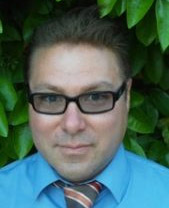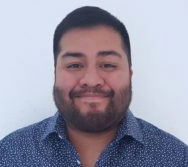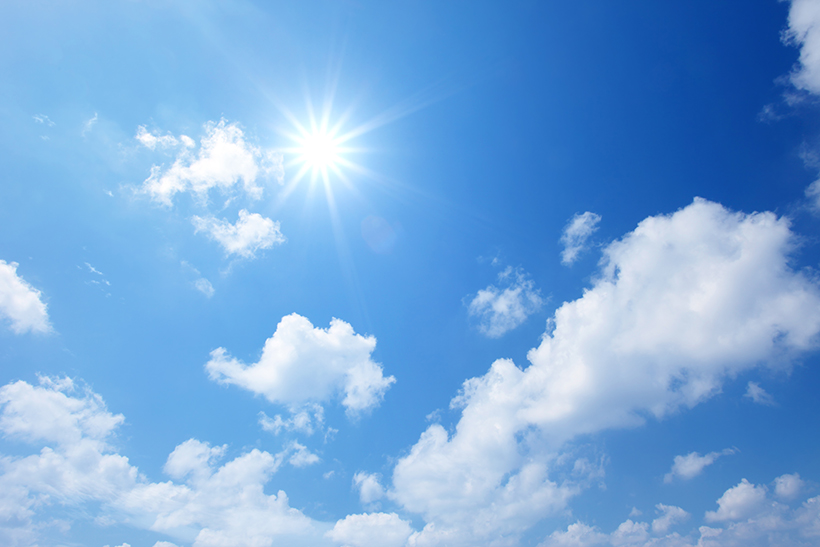We’ve invited recipients of 2019 and 2020 NCTE/CCCC/TYCA awards to reflect on how the current pandemic is affecting their teaching—the challenges, concerns about their students, surprises and discoveries, strategies that help them cope, and things that give them hope. Responses received so far have been vibrant and varied; some will appear in Literacy & NCTE blog posts and others in fall issues of The Council Chronicle.
This post features comments from the recipients of the 2020 CCCC Outstanding Book Award.
 Damián Baca (2020 CCCC Outstanding Book Award for Rhetorics Elsewhere and Otherwise: Contested Modernities, Decolonial Visions) is an associate professor in the College of Social and Behavioral Sciences at the University of Arizona, Tucson. Baca is author of Mestiz@ Scripts, Digital Migrations, and the Territories of Writing, among other publications.
Damián Baca (2020 CCCC Outstanding Book Award for Rhetorics Elsewhere and Otherwise: Contested Modernities, Decolonial Visions) is an associate professor in the College of Social and Behavioral Sciences at the University of Arizona, Tucson. Baca is author of Mestiz@ Scripts, Digital Migrations, and the Territories of Writing, among other publications.

Romeo García (2020 CCCC Outstanding Book Award for Rhetorics Elsewhere and Otherwise: Contested Modernities, Decolonial Visions) is an assistant professor of writing and rhetoric studies at the University of Utah. His writings have appeared in The Writing Center Journal, Community Literacy Journal, and College Composition and Communication, among other publications.
We continue to struggle with how notions of educational professionalism remain in close proximity to dominant, hierarchical power, which in turn is anchored to Whiteness as a consequence of colonialism. Thus, we join others in efforts to delink teaching and learning from the structural, systemic causes of our predicament: the colonial projects of occupation, compliance, and assimilation. COVID-19 has exacerbated the precarity of our own teaching, online or in-person or hybrid, while we navigate individual and collective trauma that long predate the current political moment.
The disproportionate effects of COVID-19 on Indigenous, Latinx, and African American students and communities are a significant concern and must be acknowledged by our educational institutions. Because in-person instruction can further compound such inequity, administrators, along with staff and faculty, have a responsibility to earn the trust of the most vulnerable among our student populations. Undocumented students in particular are affected by federally imposed racist policies that run concurrent with historically rooted societal demonization or views.
Educators of color did not have to wait for COVID-19 or anti-Black police rioting to begin challenging structural and epistemic racism. Nonetheless we welcome the unanticipated number of White educators looking for opportunities to coconspire and work toward the cocreation of livable, sustainable educational environments for underserved and underresourced student, staff, and faculty populations.
Drawing upon Ersula Ore’s example in “Pushback: A Pedagogy of Care” [Pedagogy, 2017. 17(1)] we turn to the practice of direct and candid speech (26) about structural racism in our educational institutions. We also take necessary steps toward valuable self-care practices, such as scheduling calls every couple of weeks with trusted mentors, family, and other loved ones, as well as securing time outside with nature through mindful breathwork and contemplation. And we recognize how these self-care practices are linked to community-care practices and the needs and struggles of others in our collective families and communities.
Our educational praxis has been continually invested in prompting students to carefully and deeply consider their entanglement and complicity with hierarchical structures of power, and to consider ways in which we all can unlearn, rebuild, and re-exist otherwise. Historically resilient communities have illustrated strategies for challenging and overcoming oligarchic, colonial violence.
Our hope remains tied to concrete actions for systemic change, decolonial healing, and collective flourishing.
Professional training in our field cannot sustain the overwhelming disconnect between what university leaders claim to know about structural and epistemic racism and how systematic anti-Black and anti-Brown racism actually functions in our departments, in our faculty meetings, and in our classrooms. We hope the current pandemic will motivate our institutions to engage in a long-overdue reassessment of community needs and aspirations that can lead to culturally responsive outreach practices, intellectual inquiry with accountability, and social transformation.
 Jessica Restaino (2020 CCCC Outstanding Book Award for Surrender: Feminist Rhetoric and Ethics in Love and Illness) is a professor of Writing Studies and director of gender, sexuality, and women’s studies at Montclair State University, New Jersey. Her research interests include writing teacher preparation, pedagogical theories and the teaching of writing, community literacy and activist writing/rhetorics, medical rhetorics, and feminist research methodologies, especially ethnography as a tool for rhetorical study.
Jessica Restaino (2020 CCCC Outstanding Book Award for Surrender: Feminist Rhetoric and Ethics in Love and Illness) is a professor of Writing Studies and director of gender, sexuality, and women’s studies at Montclair State University, New Jersey. Her research interests include writing teacher preparation, pedagogical theories and the teaching of writing, community literacy and activist writing/rhetorics, medical rhetorics, and feminist research methodologies, especially ethnography as a tool for rhetorical study.
From my view, our Fall 2020 challenges are multiple. I am actively trying to imagine safe inroads for some in-person engagement with my students (those who want it, anyway) and currently I’m feeling like even our best, most well-intentioned efforts may fall short of our hopes. Not only do the necessary efforts around spacing and mask-wearing fundamentally shift the nature of the classroom space itself, as human beings we are just plain fallible when it comes to rule-following and guidelines. Behavioral lapses can create a good deal of anxiety and undermine what we typically gather in a shared space to do, which is to create a safe learning community. Add to these modified in-person efforts remote and online instruction—live streaming, synchronous and asynchronous virtual engagement—and we can easily end up juggling what I expect may start to feel like disparate pieces in the name of course delivery.
So I suppose I see connection and community-building as core challenges. I am asking myself as I prepare: What are the ingredients that build trust so we can learn together? How do I create a space that invites students to explore their questions under these challenging circumstances? When—and here is yet another major professional challenge—any of us feel like our health is at risk, when we are struggling at home with sick family members, when we are feeling the crunch of stark finances (which many of my students in the spring were already enduring) our intellectual space for learning, for exploring new ideas and connections, is compressed.
Approaching our work in ways that honor the human realities we all are carrying these days is necessary, part of our professional challenge across the board.
We endured a major peak in COVID cases in New Jersey during the Spring 2020 semester, and I worry that my students will face either more of the same amid a second wave of infections or that the major financial, psychological, even spiritual impacts will only be further exacerbated for many over time. As a public university in metropolitan New Jersey, Montclair State serves students who represent some of the very hardest hit communities in the country. Students were trying to complete their classes in the spring semester while family members fell ill, while students themselves were ill, as family members died from the infection, and as many faced serious financial hardship.
Additionally, many of our students have identified widespread online instruction as enormously challenging for them—they struggled to keep track of assignments; they struggled to engage from spaces that had to be shared with multiple family members while sheltering in place; they struggled with technological access and tools; and they struggled emotionally and intellectually with a lack of connection to instructors and peers. I think many of us, as instructors, shared these difficulties. That this virus continues to rage means that our students this year face similar sorts of challenges still, and that the effects of all they’ve already weathered will be with them as well. Our students have been through a lot already and we have not arrived at a place where we can confidently assure them of the light at the end of this tunnel. That is hard for all of us to face.
I was surprised to see myself improve as an online instructor. I did find new tools for use, and new ways to engage that helped to foster the sorts of connections that my students and I most need. It was imperfect and I have much to learn, but I did get better and I was proud of myself. I never thought I’d create weekly videos of myself to introduce students to each week of coursework, complete with screen-sharing, voice overs—but, alas, it happened!
I’ve learned that the “long view” really overwhelms me and stalls my productivity. When I ask myself, “When will this be over? Will it be months? Years?,” I really come into contact with my powerlessness. That’s okay—it is important that we face the limits of our control and our power—but it’s also not a path towards agency. When I reorient towards the short-term, “What can I do today, tomorrow, this week? How can I contribute towards the safety of myself and others (eg., wear a mask)?,” I can find my power; I can make small advances that do (however slowly) accumulate; I can contribute to the larger good. Thinking small helps me.
Beyond that—I did not quit therapy (a global pandemic is not a good moment to decide you’re done, that’s my best sense of things); I do yoga; I run (staying as far away from people as I can); I sit on my front steps and stare at the trees; I focus on my family and make time to talk to friends; I read poetry; I scribble ideas, however partial, in a journal; I honor the limits of my energy; I rest.
We know that the COVID pandemic has ripped more fully open long-held injustices in this country. These violences are not new—they have always been—but the pandemic has laid them bare in ways that are perhaps more widely, hideously visible, especially to white, middle-to-upper class people (everyone else has not had the luxury to be quite so unaware).
We are teaching and we are learning at an urgent moment. With our students, we are all witnesses to the realities of our time; many are survivors of vast inequities and abuse; many have endured (and will yet endure) big losses. We have an opportunity to be together as learners, as citizens, as community members in this moment. Can we learn what we must? Can we hold the very idea of the university to a fundamental commitment of educating for citizenship, for change-making, for holding up and out the next generation who can take this hurt world for themselves, make it more compassionate, more just, more loving? I don’t know if I might categorize these questions as “hopeful” as much as they are about making a shared commitment to being with and teaching from a place of truth, pain, and loss. I see this positionality as inseparable from any hope for actual change.
My grandparents were teenagers in poor, immigrant families during the Great Depression in this country. They were expected to help their families survive; they were living witnesses to the danger and severity of life pushed to its edges. As a kid I can remember understanding some of their attitudes and practices as outgrowths of this experience. The remnants weren’t all bad: conserving food and energy; not taking more than you need; the lifesaving value of having work.
I do believe we will be changed, as a generation of faculty and students, from this experience. My hope is that the marks of this change will invite us to see what we have that works, that is worth saving and nurturing, and that it will also put into greater relief the excess, that stuff that has not brought us more tightly together nor helped us survive and grow.
I think much of this is yet to be seen. As we are enduring losses it can be hard to assess fully the impact. But I do believe we will get there. My hope is that we will emerge with a notion of teaching in the university that prioritizes and values, more than ever, humanity, citizenship, and connection above all else.
It is the policy of NCTE in all publications, including the Literacy & NCTE blog, to provide a forum for the open discussion of ideas concerning the content and the teaching of English and the language arts. Publicity accorded to any particular point of view does not imply endorsement by the Executive Committee, the Board of Directors, the staff, or the membership at large, except in announcements of policy, where such endorsement is clearly specified.

